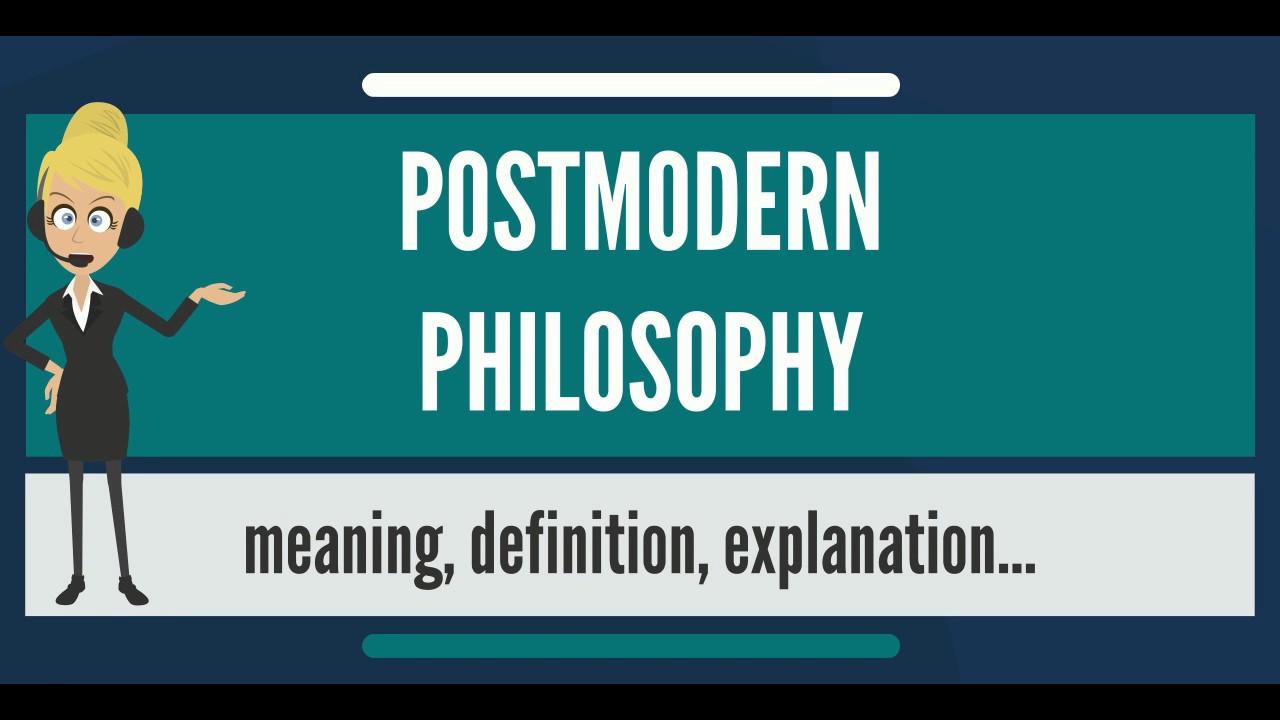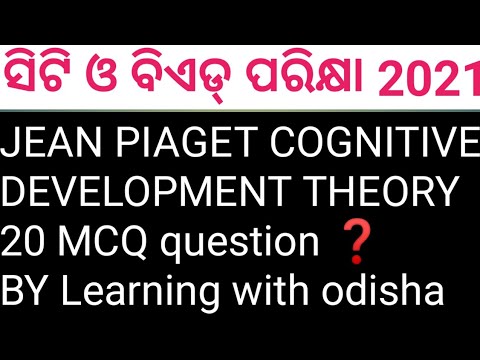The Audiopedia
✪✪✪✪✪ http://www.theaudiopedia.com ✪✪✪✪✪
✪✪✪✪✪ The Audiopedia Android application, INSTALL NOW – https://play.google.com/store/apps/details?id=com.wTheAudiopedia_8069473 ✪✪✪✪✪
What is POSTMODERN PHILOSOPHY? What does POSTMODERN PHILOSOPHY mean? POSTMODERN PHILOSOPHY meaning – POSTMODERN PHILOSOPHY definition – POSTMODERN PHILOSOPHY explanation.
Source: Wikipedia.org article, adapted under https://creativecommons.org/licenses/by-sa/3.0/ license.
Postmodern philosophy is a philosophical direction which is critical of certain foundational assumptions of Western philosophy and especially of the 18th-century Enlightenment. It emphasizes the importance of power relationships, personalization and discourse in the “construction” of truth and world views. Postmodernists deny that an objective reality exists, and deny that there are objective moral values.
Postmodern philosophy is often particularly skeptical about simple binary oppositions characteristic of structuralism, emphasizing the problem of the philosopher cleanly distinguishing knowledge from ignorance, social progress from reversion, dominance from submission, good from bad, and presence from absence.
Postmodern philosophy has strong relations with the substantial literature of critical theory.
According to Brian Duignan of the Encyclopedia Britannica, many postmodern claims are a deliberate repudiation of certain 18th-century Enlightenment values. A postmodernist might believe that there is no objective natural reality, and that logic and reason are mere conceptual constructs that are not universally valid. Two other characteristic anti-Enlightenment postmodern practices are a denial that human nature exists, and a (sometimes moderate) skepticism toward claims that science and technology will change society for the better. Postmodernists also believe there are no objective moral values. Postmodern writings often focus on deconstructing the role that power and ideology play in shaping discourse and belief. Postmodern philosophy shares ontological similarities with classical skeptical and relativistic belief systems, and shares political similarities with modern identity politics.
Philosopher John Deely has argued for the contentious claim that the label “postmodern” for thinkers such as Derrida et al. is premature. Insofar as the “so-called” postmoderns follow the thoroughly modern trend of idealism, it is more an ultramodernism than anything else. A postmodernism that lives up to its name, therefore, must no longer confine itself to the premodern preoccupation with “things” nor with the modern confinement to “ideas,” but must come to terms with the way of signs embodied in the semiotic doctrines of such thinkers as the Portuguese philosopher John Poinsot and the American philosopher Charles Sanders Peirce. Writes Deely,
The epoch of Greek and Latin philosophy was based on being in a quite precise sense: the existence exercised by things independently of human apprehension and attitude. The much briefer epoch of modern philosophy based itself rather on the instruments of human knowing, but in a way that unnecessarily compromised being. As the 20th century ends, there is reason to believe that a new philosophical epoch is dawning along with the new century, promising to be the richest epoch yet for human understanding. The postmodern era is positioned to synthesize at a higher level—the level of experience, where the being of things and the activity of the finite knower compenetrate one another and provide the materials whence can be derived knowledge of nature and knowledge of culture in their full symbiosis—the achievements of the ancients and the moderns in a way that gives full credit to the preoccupations of both. The postmodern era has for its distinctive task in philosophy the exploration of a new path, no longer the ancient way of things nor the modern way of ideas, but the way of signs, whereby the peaks and valleys of ancient and modern thought alike can be surveyed and cultivated by a generation which has yet further peaks to climb and valleys to find.
Source




Postmodernism is characterized by an attitude of skepticism, irony, or rejection toward the meta-narratives and ideologies of modernism, often calling into question various assumptions of Enlightenment rationality.
Postmodernism developed in the mid- to late 20th century across philosophy, the arts, architecture, and criticism and represented a departure or rejection of modernism.
Postmodernism relies on critical theory, an approach that confronts the ideological, social, and historical structures that shape and constrain cultural production.
Common targets of postmodernism and critical theory include universalist notions of objective reality, morality, truth, human nature, reason, language, and social progress.
Postmodernist approaches have been adopted in a variety of academic and theoretical disciplines, including political science, cultural studies, philosophy of science, economics, linguistics, architecture, feminist theory, and literary criticism, as well as art movements in fields such as literature and music.
Postmodern thinkers frequently call attention to the contingent or socially-conditioned nature of knowledge claims and value systems, situating them as products of particular political, historical, or cultural discourses and hierarchies.
Accordingly, postmodern thought is broadly characterized by tendencies to self-referentiality, epistemological and moral relativism, pluralism, and irreverence.
Postmodernism is often associated with schools of thought such as deconstruction and post-structuralism, as well as philosophers such as Jean-François Lyotard, Jacques Derrida, and Fredric Jameson.
Criticisms of postmodernism are intellectually diverse, and include assertions that postmodernism promotes obscurantism, and is meaningless, adding nothing to analytical or empirical knowledge.
In short, postmodernism claims that human evolution does not have any direction, whether the process was created in some way prior to the Big Bang, or randomly/ accidentally formed in the Big Bang.
But there's scientific proof that human evolution as such has a direction, namely the energy density increase, since Homo Erectus learned to control fire. This process is meant to make us survive much longer than any other species before, because we can do two things with it (nuclear power, imitating the sun):
1. Act as a force on earth, against natural forces (asteroids, severe ice ages etc) which will manifest themselves sooner or later. The dinosaurs didn't have enough energy around them (produced by the sun in plants and other living forms) to develop intelligence enough, so they could just sit and watch their own extinction happen, with their in many cases fantastic eyes (T.Rex could see details severeal kilometers). We're not meant to do that, in fact, we're meant to fight as hell against it, that's essentially why science has evolved. We just have to understand it, that's why postmodernism is so incredibly stupid.
2. With increasing energy density we can also spread out in the solar system, to at least survive with colonies of a couple of thousand people, if something drastic should happen to the earth.
With these two actions, we can aim for immortality with our own will, in the first step as long as the sun functions normally (at least half a billion years more).
What is postmodernism? The intellectual mumbling of a confused age!
No one likes robot voices, stop being lazy.
This video is simplistic and rather stupid. The fact that it mentioned identity politics tells me it's by a small brained Jordan Peterson sycophant. Vomit!
This is nothing more than a Wikipedia reader!
Dislike for the voice and reading quality
Why do I render this philosophy as sheer garbage?
really hard to understand due to that synthetic voice.